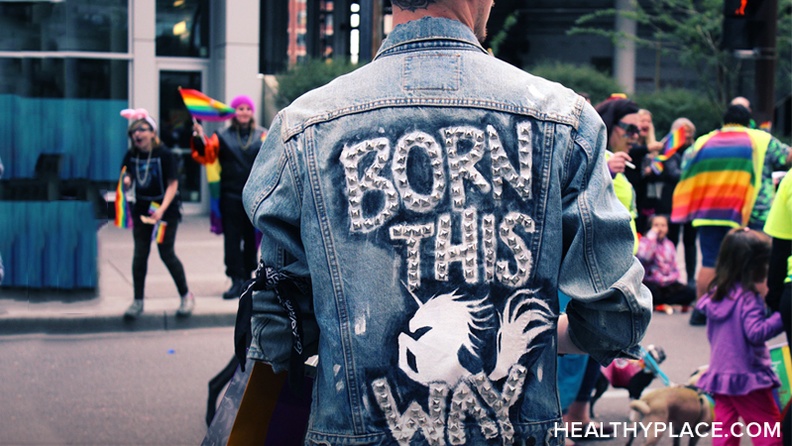LGBTQIA+ Gender Identity Is Important in Mental Health

Gender identity in the lesbian, gay, bisexual, transgender, queer, intersex, asexual, etc. (LGBTQIA+) community is important when speaking about mental health. Society has made a habit of assigning gender based on assumptions relating to outward appearance and tone of voice. Mental health concerns can be tied together with gender identity, and it is important to respect an individual's chosen identity without our own biases getting in the way.
Being a part of the LGBTQIA+ mental health community or being an ally to this community begins with basic respect for gender identity and the willingness to learn and be curious regarding aspects of this community we are not aware of.
What Is Gender Identity in the LGBTQIA+ Mental Health Community
Gender identity refers to how one feels and experiences their own gender. I identify as a cisgender female. This means that I was labeled female at birth and identify as a female now. My pronouns are she/her, and this means I prefer to have these pronouns used when others speak to and about me.
Due to my outward appearance, many individuals tend to assume my gender identity is that of a male or transgender male. Many individuals, including care providers regarding my mental health, have also used the pronouns he/him to refer to me without asking me first. These are examples of assuming someone's gender identity based on personal bias and societal norms.
Society tells us that an individual who has short hair and wears slacks over skirts identifies with a male persona. Our society also tells us that a high-pitched voice signals a female inhabits the body it came from. What about a transgender female whose voice does not match their chosen gender identity? Or, an individual who identifies as non-binary (neither male nor female gender) but dresses in more masculine attire?
Best Practices in LGBTQIA+ Gender Identity and Mental Health
It is okay not to be aware of all aspects regarding the LGBTQIA+ mental health community and gender identity. Cultural humility teaches us that we can keep our personal biases in check while also being eager to learn that which we do not know.
If you are unsure of the gender identity an individual feels most comfortable identifying with, never assume. Gender expression and presentation are based upon the outward appearance of individuals as well as the tone of voice. Your ingrained biases may tell you that these are easy ways to identify gender. Remember that once we assume, we have taken away our option to be open-minded and learn.
Questions regarding gender identity are appropriate to ask those in the LGBTQIA+ community. Or, we can use gender-neutral pronouns such as they/them. Lastly, we can remove gender from our casual conversations when we are unsure of the gender in question. When you tell a story about the individual at the bagel shop, refrain from using gender-specific pronouns. This helps us make small steps in leaving gender identity up to the only individual who can decide it: the person to whom it belongs to.
For more on gender identity, watch this:
What has been your experience with LGBTQIA+ gender identity and mental health treatment? Do you feel that the LGBTQIA+ mental health community is welcoming regarding your gender identity? If you do not, what changes could help you feel comfortable?
Leave your comments down below.
APA Reference
Nolasco, M.
(2021, February 28). LGBTQIA+ Gender Identity Is Important in Mental Health, HealthyPlace. Retrieved
on 2026, January 16 from https://www.healthyplace.com/blogs/thelifelgbt/2021/2/lgbtqia-gender-identity-is-important-in-mental-health